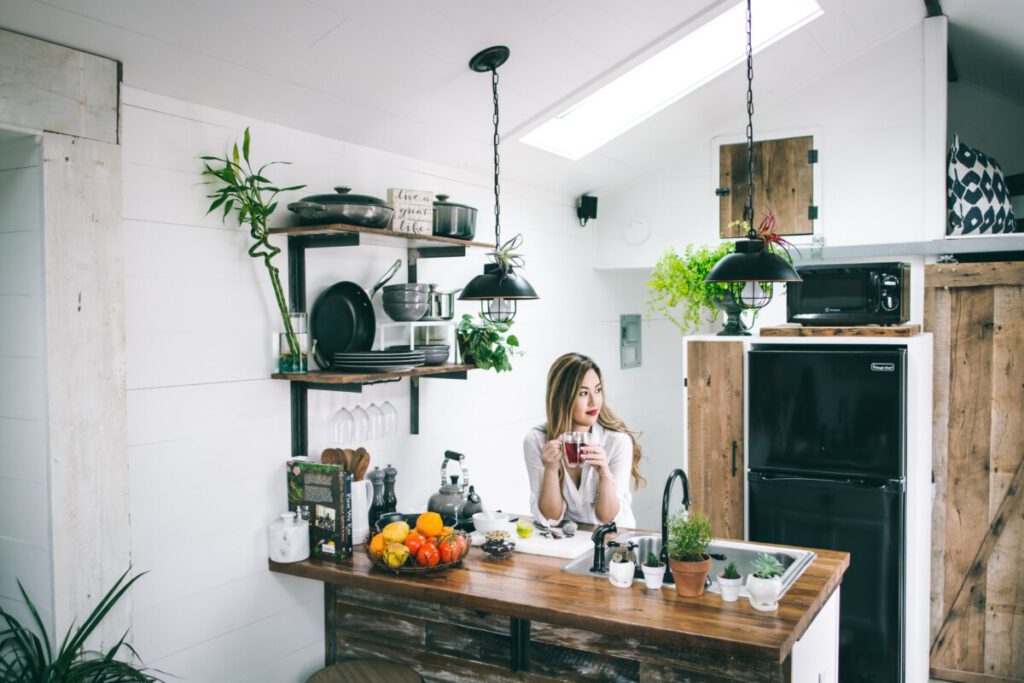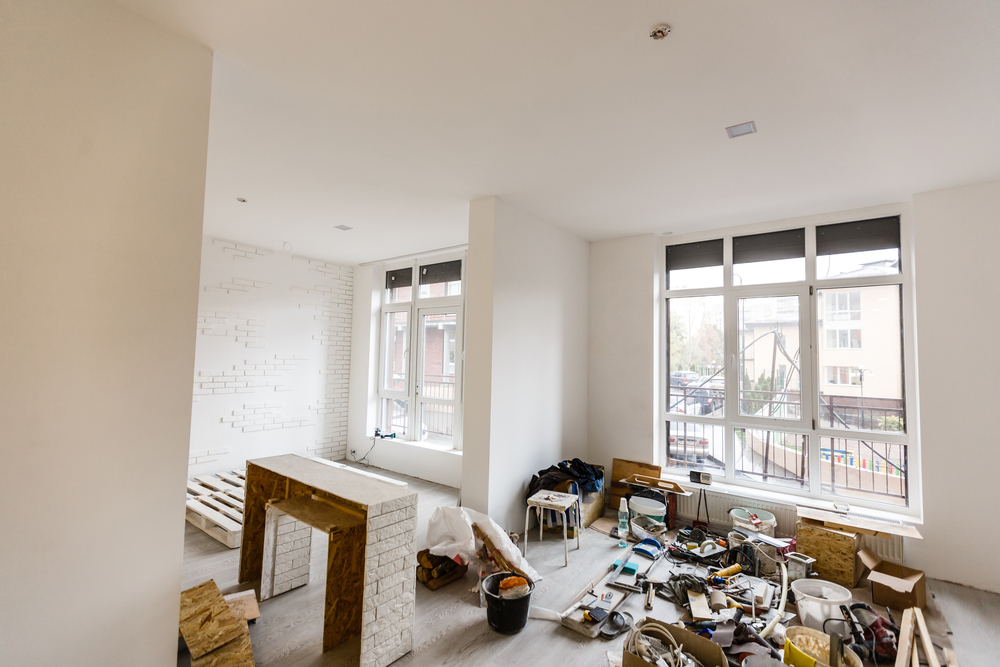Congratulations! You’ve jumped through the hoops and bought yourself the perfect Dutch house — well, almost perfect. Here’s how you can use your mortgage to help renovate your home and make sure that your monthly payments are working in your favour.
Buying a house and taking out a mortgage in the Netherlands is no small feat. It’s a flurry of paperwork, sweat and the occasional tears. But once the dust has settled, and you’ve made yourself comfortable in your home, it may be worth considering how you can make the most out of your Dutch mortgage.
We chatted with Henk Jansen over at Expat Mortgages to bring you this piece. Naturally, the conversation turned to all things mortgages, and of course, that lingering elephant in the room — the pandemic. But we’re getting ahead of ourselves, let’s dive right in.
Making the most of your Dutch mortgage: renovating
Henk was quick to point out that this year of lockdowns and remote work has caused many homeowners to reconsider the interior of their houses. “They are no longer just spaces that you return to at the end of a busy day, they have become our offices, schools, libraries and cafes,” he says.


While life may be slowly returning back to normal, the way in which we use our homes has been changed permanently. For example, many of us will likely work both in-office and at home from now on. This means that the decision to make your home a more pleasant space is a worthwhile investment. The problem is, many don’t know how to fund this — and that’s where Henk’s expertise comes in.
“When you have a house, you have equity — that’s obvious” he tells us, “but not many people know that they can actually use that equity to make their homes nicer.” He explains that there are two key ways that you can do this — through bouwdepot or by refinancing your mortgage.
Make the most out of your Dutch mortgage: bouwdepot
Indeed, one key way to expand on the possibilities of your mortgage lies in the word bouwdepot. Take note of this word non-Dutch speakers — it’s going to be very important if you’re a hopeful or current homeowner in the Netherlands.
A bouwdepot (meaning construction deposit) is a loan that can be taken out of your Dutch mortgage to finance the renovation or construction of your home. Think of it as a loan that you organise alongside your mortgage. A certain amount of money is put aside which can then be used to finance a facelift for your house.
Why get a bouwdepot in the Netherlands?
Pandemic aside, there are many reasons why a bouwdepot may be a good decision for you and your household.
Make space for a growing family
Perhaps you and your partner fit nice and snug into your beautiful home — but now you’ve got the pitter-patter of little feet to cater to. With an extra (slightly unruly) human in the building, you may feel that it’s time to add a conservatory to your home or replace those wobbly windows with something a bit more sturdy.
Give your house a new look
Perhaps you want to treat your house to a nice makeover? Or to invest your time and money in raising saplings in a newly built garden? Again, bouwdepot is the magic word here.
Make your house more sustainable
You can even use a bouwdepot to make your house more eco-friendly! In today’s day and age, making a house more sustainable adds to its value in the same way that a snazzy look does.

Add value to your home
Yup, that’s right, by taking out a bouwdepot to better your home, you’re also adding to its value. This means that the fruits of your labour can be enjoyed even if you decide to move on and sell your property!
In fact, should you ever wish to sell your house, you may make back the money that it cost you to upgrade in the first place — or more.
How can you apply for a bouwdepot in the Netherlands?
The process of getting a bouwdepot in the Netherlands is similar to that of getting a mortgage — which is no easy feat.

What do you need?
If you want a bouwdepot, the first thing you’ll be needing is a mortgage advisor. Usually, you arrange for a bouwdepot with your advisor while you are establishing the terms of your mortgage. However, some mortgage companies will also allow you to arrange it later on in the process.
The team at Expat Mortgages are experts when it comes to the process of setting up your mortgage. Their services are catered specifically to expats who are unfamiliar with the Dutch mortgage system. They can walk you through the process of getting a bouwdepot — and a home of course!
The second thing you will need is a valuation report. In order to determine how much money you can set aside as your bouwdepot, a valuation report will be carried out by an appraiser. The amount you are eligible for will then be based on the estimated costs of any future construction.
Once you know how much money is necessary for your future renovations, it’s time to prove it to the banks. You’ll need to offer specific information such as how many jobs will be done and the cost for each element of construction.
Once you have taken these steps you are free to use your bouwdepot! Simply ask your mortgage advisor to activate the loan when you are ready to give your home some TLC.
Henk points out that it is important to note that a bouwdepot has a time limit. Once you have asked your mortgage advisor to activate your bouwdepot you usually have between six months and one year to spend it if you live in an existing house. If you are using it for a newly built house, the maximum is extended to two years.
Making the most of your Dutch mortgage: refinancing
Henk explains that another way to make the most out of your Dutch mortgage is to refinance it. This can reduce your monthly mortgage payments — and the equity can be used to finance the renovation of your home among other things.
READ MORE| The housing market in the Netherlands in 2021: to buy or not buy a house in the Netherlands
Why should you consider refinancing your mortgage?
You may want to refinance your mortgage for a number of reasons:
Falling interest rates
One of the primary reasons is simple — if mortgage interest rates have dropped significantly since you bought your house, then you may decide it’s time to refinance your mortgage. In doing this, the interest that you pay would be lower, meaning you pay less each month.
Henk gives us an example. “You may have taken out a mortgage with Rabobank a couple of years ago when the interest rates were higher. But now you realise that you can refinance your mortgage with ABN AMRO and enjoy much lower rates. This means you pay less each month.”
In the process of refinancing you can also have a revaluation of your property carried out. Again, this requires a valuation report which in turn could lead to higher equity (meaning more financing for your house.)
What’s great about this added equity — aside from the fact that it’s more valuable — is that you can use this amount to finance the refurbishment of your property.
You’re moving abroad
However, a snazzy new home office isn’t the only way that you can make the most of your Dutch mortgage. If you plan on leaving the Netherlands but own a home here, you may decide that you want to keep your house and rent it out. In this case, you will need to refinance your residential mortgage as an investment mortgage.

Improve the terms and conditions of your mortgage
You may not be happy with the initial terms and conditions that you agreed to when first establishing your mortgage. By refinancing, you open up these negotiations again and may be able to get yourself a better deal.
READ MORE| After buying a house in the Netherlands – the ultimate aftersale guide for expats
How can you refinance your mortgage in the Netherlands?
The process of refinancing your mortgage is similar to the process of establishing your mortgage in the first place. However, the first step is to break your initial mortgage agreement.
The “penalty fee”: a one-off cost
This means that you will have to pay a “penalty fee” for breaking the contract before the term of the mortgage ends. The fee is often a reason why some people will choose not to refinance their mortgage as it can be quite high and sometimes outweighs the benefits of a reduced monthly payment.
READ NEXT | The biggest changes when buying a house in 2021
However, this is not always the case. For some, the cost of the “penalty fee” is worth paying as they can save more money in the future and enjoy more well-suited terms and conditions by refinancing their mortgage.
Henk also points out that this penalty is often tax deductible. This means you can receive between 33-55% back from the Dutch government.
In order to determine whether or not refinancing your mortgage is a worthwhile endeavour, it’s best to reach out to an expert for help. The team at Expat Mortgages are happy to provide their services and even offer free advice and housing webinars!
Mortgages are often seen as a burden to bear, but it’s important to remember that there are also things that your mortgage can do for you and your home. This is what Henk and his team want international homeowners to be aware of — and now you are!
How have you made the most out of your mortgage? Tell us in the comments below!
Feature Image: beatabecla/Depositphotos